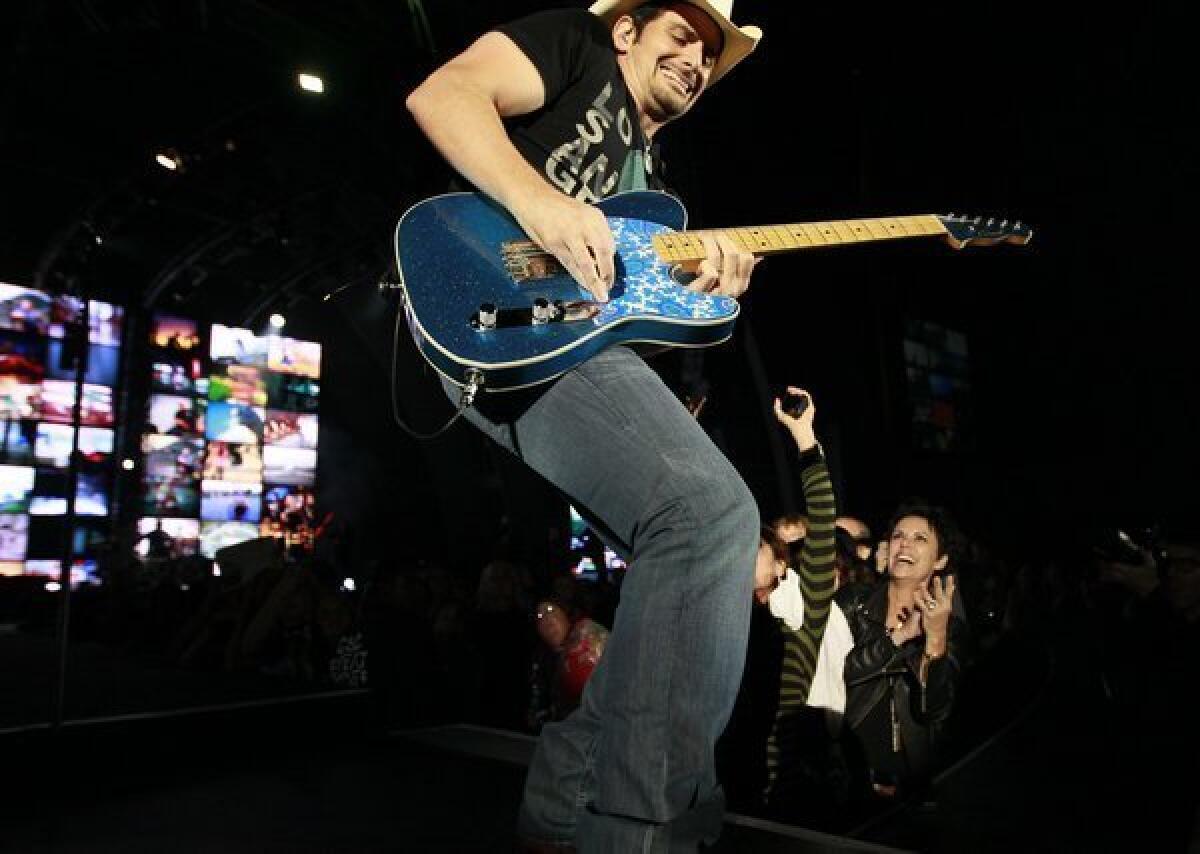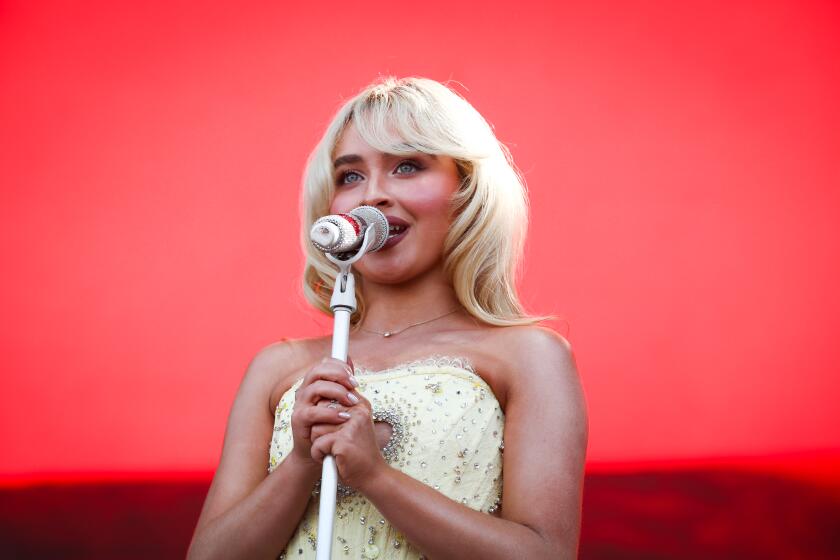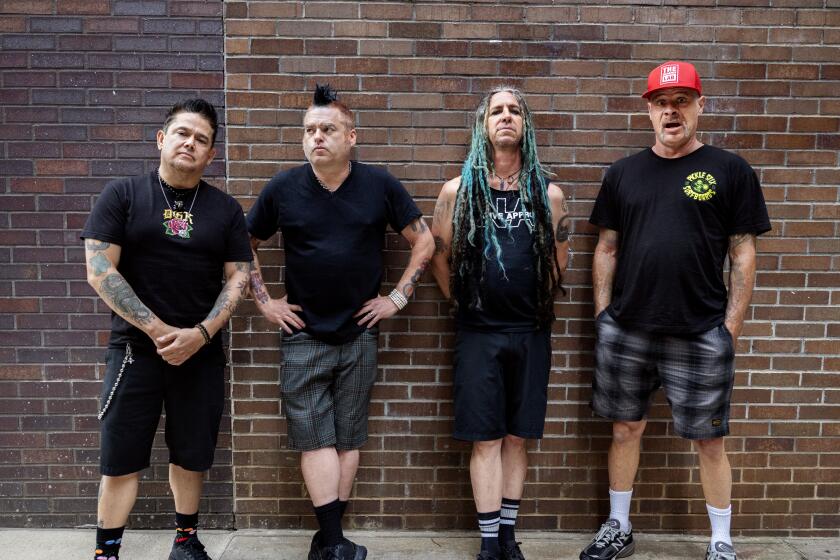Reporter’s Notebook: Controversy over Paisley’s ‘Accidental Racist’

One sobering aspect of the heated debate on TV, radio, the Internet, Twitter, YouTube and elsewhere over Brad Paisley’s song “Accidental Racist” from his new “Wheelhouse” album is that in 2013 it’s still controversial to address a social issue in a pop (or, in this case, country) song.
Anyone remember a little number called “The Times They Are A-Changin’”? Apparently not.
That seems evident in the media’s need to trot Paisley out to discuss his motivation for writing and recording the song in which he takes the perspective of a young Southerner who suddenly asks himself whether wearing his favorite Lynyrd Skynyrd T-shirt — the one emblazoned with a Confederate flag — might make him appear to be a racist to the African American man behind the Starbucks counter where he’s ordering a cup of coffee.
Paisley’s protagonist offers his thoughts about what the flag represents to him:
Our generation didn’t start this nation
We’re still payin’ for mistakes
That a buncha folks made
Long before we came
And caught between Southern pride and Southern blame
Guest rapper LL Cool J, who collaborated on writing the song with Paisley and Lee Thomas Miller, then steps in to give voice to what the black man behind the counter might be thinking and feeling:
Dear Mr. White Man
I wish you understood
What the world is really like
When you’re livin’ in the hood
Just because my pants are saggin’
Doesn’t mean I’m up to no good
Paisley’s been talking about the song on “Ellen” and on ABC-TV’s “Good Morning America,” while pundits of all stripes have taken to various forums available to them to castigate or congratulate him. The Twitterverse has been ablaze with reactions that started in earnest on Monday, the day before “Wheelhouse” was released, and YouTube offers dozens of videos with reactions of all kinds.
In one sense, it adds up to mission accomplished. Paisley’s long been interested in instigating dialogue, and he’s done it big time with “Accidental Racist.”
Paisley’s cannily been pushing at the boundaries of what’s acceptable fodder for contemporary country music virtually since he stepped into the national spotlight with his 1999 debut album “Who Needs Pictures.”
PHOTOS: Celebrties by The Times
On the surface he’s always been an eminently likable public figure with a great sense of humor. One of his earliest singles, “Me Neither,” poked at expectations in framing a clueless guy’s multiple lame attempts to woo a woman he’s been eyeing at a bar.
Darlin’ I’ve been standin’ here just watchin’ you all night
And I think I’ve even caught you watchin’ me a couple times
If I don’t ask I’ll never know
This may sound dumb, but here we go
Do you believe in love at first sight?
Me neither
I’m glad that we agree
Three years later, he turned romantic country cliches inside out with “I’m Gonna Miss Her (The Fishin’ Song),” which starts out sounding like a zillion other earnest twangy ballads:
Today she met me at the door
Said I would have to choose
If I hit that fishin’ hole today
She’d be packin’ all her things
and she’d be gone by noon
Well I’m gonna miss her
In 2005 he slipped a not-so-subtle message about one of society’s biggest ills into a honky-tonk rave-up called “Alcohol”:
I can make anybody pretty
I can make you believe any lie
I can make you pick a fight
With somebody twice your size
I been known to cause a few breakups
I been known to cause a few births
I can make you new friends
Or get you fired from work
And he took sexual innuendo to new heights — and to mainstream country radio airwaves — with “Ticks,” his 2007 No. 1 hit:
I’d like to see you out in the moonlight
I’d like to kiss you way back in the sticks
I’d like to walk you through a field of wildflowers
And I’d like to check you for ticks
Race relations were on his mind in the wake of President Obama’s election victory in 2008, and evident in Paisley’s 2009 single “Welcome to the Future,” in which he traced momentous events of the 20th century in the course of a song whose message was clear even without the use of words like “black” and “white.”
I had a friend in school
Running back on the football team
They burned a cross in his front yard
For asking out the homecoming queen
I thought about him today
And everybody who’d seen what he’d seen
From a woman on a bus
To a man with a dream
“I’m getting into some subjects that don’t come up very often in country music, like racism, and I think it’s time,” Paisley told me in 2009, shortly before the release of “American Saturday Night,” the album that included “Welcome to the Future.”
“One of the things I thought about while we were working on this,” he said four years before “Accidental Racist,” “is this nagging feeling that country music had sat this one out a little too long, as far as what’s going on right before our very eyes, and in our society.”
PHOTOS: Brad Paisley at the Hollywood Bowl
Earlier this week he told Ellen DeGeneres “I don’t know” when she asked what the song is saying. “I don’t know if any of you’ve noticed,” he deadpanned, “but there’s some racial tension, here and there. I felt like when we were writing this song, it wasn’t necessarily up to the media, I don’t really trust Hollywood … or talk radio or anything like that to sort of deal with that anymore. I think it’s music’s turn to have the converssation.”
Instead, Paisley suggested to members of the audience that they listen to the song and decide for themselves: “Make your own mind up, that’s fine. You can throw things at me, I’m all right.”
It’s the same thing he’s been doing on his own Twitter feed: “This is what I love about albums,” he tweeted on Tuesday. “Especially country albums. So many different topics can be explored.So many conversations can start here.”
Here’s Paisley’s interview on “Ellen”:
ALSO:
Brad Paisley breaks the pattern
Rick Ross lyrics removed from ‘U.O.E.N.O’
Album review: Brad Paisley ratchets up his Bard-like savvy on ‘Wheelhouse’
Follow Randy Lewis on Twitter: @RandyLewis2
PHOTOS AND MORE
COACHELLA 2013: Full coverage
THE ENVELOPE: Awards Insider
PHOTOS: Grammy top winners
More to Read
The biggest entertainment stories
Get our big stories about Hollywood, film, television, music, arts, culture and more right in your inbox as soon as they publish.
You may occasionally receive promotional content from the Los Angeles Times.










